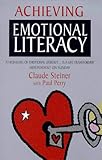 A common feature of many of the clients I work with as a counsellor in Stockport is their frequent use of negative self talk. Maybe we should start with a negative self-talk definition. Negative self talk is the ability to put ourselves down, slag ourselves off; call ourselves stupid, or ugly or useless and see all of the bad in ourselves. People who engage in negative self talk are often kind, gentle people who care about others and readily praise. The negative self talk sems to prevent this kindness being extended to themselves.
A common feature of many of the clients I work with as a counsellor in Stockport is their frequent use of negative self talk. Maybe we should start with a negative self-talk definition. Negative self talk is the ability to put ourselves down, slag ourselves off; call ourselves stupid, or ugly or useless and see all of the bad in ourselves. People who engage in negative self talk are often kind, gentle people who care about others and readily praise. The negative self talk sems to prevent this kindness being extended to themselves.
Where does negative self talk come from?
So how do people learn to put themselves down? What prevents the more positive talk to self? There are many theories so here are a couple that make sense to me.
As we grow up things don’t always go as planned. When things go wrong children have to make sense of it. Let’s take an example of parents separating. This may be a difficult situation for a child to rationalise and so they have to decide who was at fault. But the child has a problem. If she decides that it’s the parents at fault then this leaves her being looked after by people who are getting things wrong and this is a direct threat to her own survival. This only leaves one option. It must be her that is at fault and that has caused the breakdown in relationship – she must be a bad person.
The child may not make this decision on a deliberate, conscious level. It may be that these decisions are made out of awareness but sit in the subconscious dripping poison into the mind.
Parental Messages
Another way that negative self talk could arise is through much more direct messages from our parents. These may be overtly stated e.g: “why do you always get things wrong” or “you’re so lazy and useless”, or they may be covert in that achievements and successes of the child are ignored and negative behaviours or failures gain attention. This is sending a message to the child of “I expect you to get things wrong because I know you’re not a worthwhile person”. Once more it’s difficult for a child to decide that their parent is wrong because to children this is an inconceivable concept – parents always get things right don’t they?
So clients in this situation find it difficult to work out how to become positive. One Transactional Analysis expert that has spent a great deal of time studying this area and who has investigated how to help people become positive self talkers is Claude Steiner. Steiner is one of my favourite Transactional analysts and I would encourage you to go over and read his many free books on his website which you can find here.
Steiner explains that the negative talk starts as an external influence that is forced on us by powerful people in our childhood. He goes on to say that this voice is internalised and may even help us survive as children. This voice may seem useful to us but the reality is that as adults it holds us back, costs us self esteem and belief in ourselves and diminishes our ability to live happy fulfilled lives.
How to drop the negative self talk and be more positive.
You often hear of positive self talk in sport situations but how do we apply this to everyday life? Here’s a few suggestions on how to talk more productively to yourself.
Firstly, realise that the voice in your head saying negative things is not telling you the truth. It’s information is historical and from another source that is not you. The negative self talk you are hearing is lying to you. It can be useful to use distancing techniques to overcome the negative self talk you are hearing. I have written a post here about doing this and it may be useful to give it a read. Distancing yourself from the negative self talk, understanding that you are not your thoughts, can help some people enormously.
Therapy helps
The next suggestion is that you talk about your negative self talk to others. You lay it out there openly and discuss it with someone who will listen without prejudice and help you see that the negative self talk is untrue and in many cases, ridiculous. A good therapist or counsellor is an excellent resource to help you do this as they are trained to pick up the negative self talk when it slips out of your mouth without realising it and point it out to you.
Positive affirmations
Another great technique involves actively being positive with yourself. Repeating affirmations in the mirror can be a powerful way of reminding yourself that you are a worthwhile, OK human being. Look at yourself and say out loud “I am important” or whatever other idea you have difficulty dealing with. Be ready for the negative self talk to click in and tell you that it is not true and make the decision that when you hear that voice you will either ignore it or tell it to eff off! (another Steiner suggestion).
Steiner suggests that a key part of loving yourself is around giving love to others in an honest and straight way. By loving others we can love ourselves better. This may involve battling with the stroke economy – that ability that we all have to reject nice things said to us and accept the horrid. If you are aware of this though you have more of a choice. You can choose to reject the negative messages you tell yourself. You have power.
If you have a big problem with negative self talk and lack of self esteem then I would advise you to work with a counsellor or therapist to support you in change.
Please use the comments section to tell me about your experience with negative self talk. Do you suffer from low self esteem? Have your conquered your lack of belief in yourself? Let me know below your thoughts and opinions on how to give negative self talk a good kicking!


